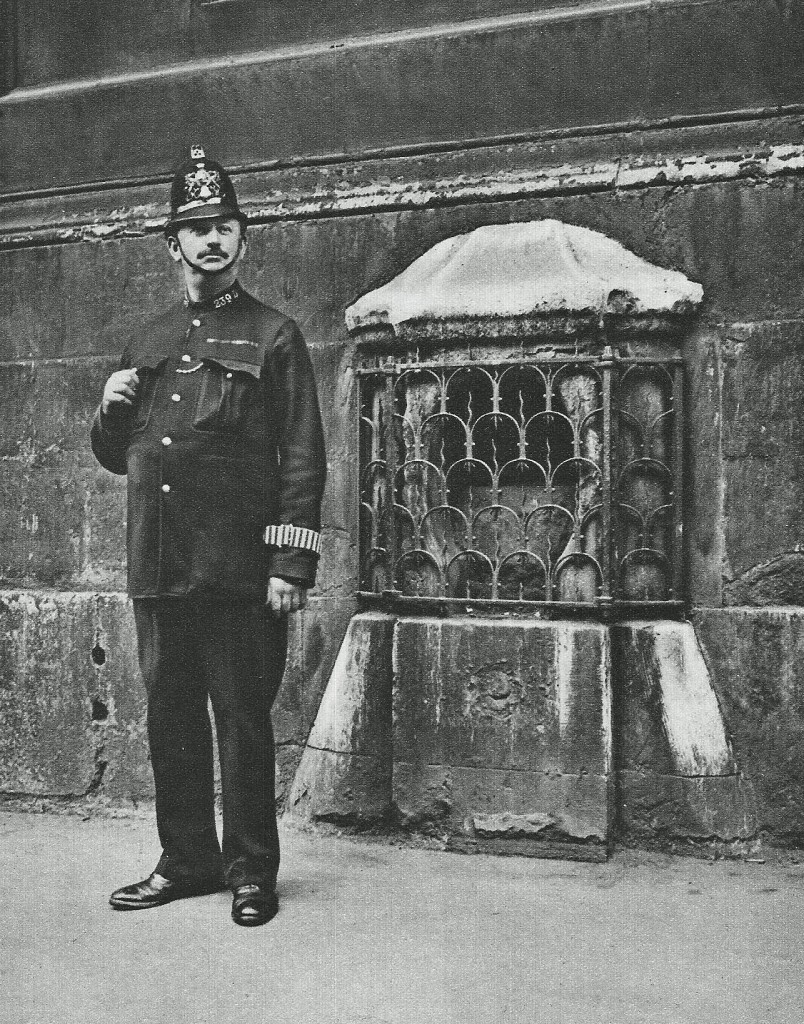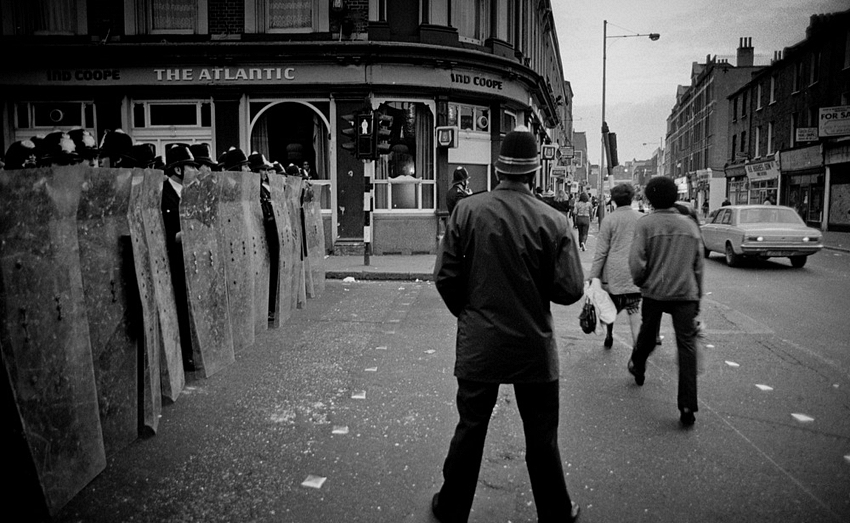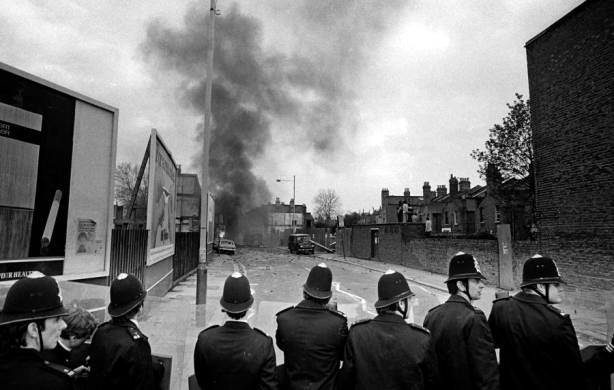There’s a video going viral of police ‘raiding’ a house for drugs in Cardiff by cutting into the front door with a chainsaw. I watched this latest escalation on the British front of the ‘War on Drugs’ with dismay.
Before I started working undercover, I worked a lot with pro-active teams and Drugs Squads. I did more than my fair share of ‘raiding’. Police tactics for such raids had already developed into something pretty harsh by the mid-nineties, but that of course is the nature of drugs policing – it’s a never-ending escalation that house searches become more frightening for the recipient.
I had been taught as a young probationary constable to treat everyone with respect, and that everyone is innocent until proven guilty. I had a highly principled tutor who tried to instil in me the need to properly consider the impact on an individual when they come into contact with the police. Taking away someone’s liberty, he would remind me, is a very grave thing indeed, and if we enter their home to do that, it is even more impacting.
The search of a suspect’s house is a routine task in the police, it happens with any theft or a multitude of other investigations. “Treat people with respect” we young constables were taught in training school, “This is someone’s privacy you are invading.” The evidence may not be there and they are after all innocent until proven guilty. And in any case it’s not our place to judge. This is the understanding I left the police classroom with.
My classroom understanding was reinforced by my tutor. When we executed a search warrant for property from an armed robbery, we knocked at the door and politely asked if we could enter. My education therefore followed the great tradition of British policing of passive, unarmed, polite constables, who police by consent.
However there is something that changed that tradition – the Misuse of Drugs Act 1971.
Which brings me back to the chainsaw.
Now, some may read this and insist that drugs legislation is not the cause of the change in policing. The police have powers to enter property from a great variety of legislation. This is of course true, but as a detective I have executed search warrants for stolen property, child pornography and even multiple Firearms Act warrants by politely knocking on the door and being oh-so-careful to treat people as I would wish to be treated myself. Unless there is a good reason not to, this should be the default position.
So what has gone so wrong in policing – and how has drugs investigation caused it?
Well, when police started to get to grips with the arsenal of powers granted in the Misuse of Drugs Act it quickly became apparent that gathering evidence had suddenly become rather tricky. Drug users could either flush drugs away or quickly swallow them. Overlapping civil law and The Police Act means that in order for police not to be liable for any costs incurred during a drugs raid it means that drugs really need to be found in order for it not to become an expensive and embarrassing event. Also, it didn’t take many hospitalisations from overdoses before a new standard house search procedure became the norm.
So now, at any briefing for a drugs warrant across the nation, a Detective Sergeant or Uniform Sergeant will list instructions something like this:
Two constables at the front, in full body armour as part of the protective kit for the door ram. One will smash the door in – preferably in one lunge. At least five constables will rush in, after having entered they must start shouting at the top of their voices in an aggressive manner, to “cause fear”, to disorientate occupants. Officers will have rooms designated, recorded on a plan of the property beforehand. As each room is entered, any occupant will be quickly “subdued”, by forcing them to the floor and handcuffing them, “stack” style, so that they are unable to dispose of evidence and crucially so that they cannot injure themselves by swallowing any evidence. As each room is secured, the officer responsible for that room will shout that it is clear or secure.
Whilst working undercover I was on the receiving end of a drugs warrant like this, quickly trussed up with brutal efficiency. I knew it was coming, and it was still absolutely terrifying.
As these tactics developed, because of the problem of easily swallowed evidence, it means that all of this brutality is so that the occupants can be saved from themselves.
As we’ve addressed, you may protest that there are other types of warrants where such efficient controlled violence is used. Well yes, I would say that the public find it quite palatable to see terrorists on the receiving end of such tactics, but those are unusual events that require an untraditional approach. Drugs warrants are everyday events which with every passing year become more acceptable to society. Allowing the MoD Act to continue will continue to ruin policing if we don’t reform our drugs laws. Communities are being forever changed by this detached aggression.
It is clear to see, if we care to look, how policing drugs has damaged our society. It is a generally accepted view of history that the devastating riots of 1980-81 in Toxteth, Brixton etc., had a major cause in the increased and ethnically targeted over-use of Stop and Search powers. But why is the obvious fact that this was the end of the first decade of the Misuse of Drugs Act not recognised as a cause?
As a police officer I didn’t have any problems in searching someone for a weapon or stolen property. It is accepted by the innocent and offender alike that this is just the game. It’s not so unusual to come across an “it’s a fair cop governor” attitude, a leftover echo of the Dixon of Dock Green effect that comes with a society that polices by consent. But a search for drugs is a different matter. That causes tension, and it is the tension of a society fracturing from an unjust law.
The riots of the early ’80s were race riots. That is because drugs offences are applied with inherent racism. When police were asked to investigate this new idea of drugs possession and dealing, each officer was being asked to police a moral judgement. They had to decide, what does an immoral person look like? This decision making exposed and amplified prejudice. Prejudice that easily becomes collective and institutional, cultivated by confirmation bias, and evidenced by the indignant reaction of the recipients.
And this racism pervades clearly today. It will remain, and will not start to clear from the institution until ideological judgement is removed from the responsibility of those who are there to protect and serve. There is evidence of this racism – it’s clear in the staggering figures produced by Release from the police’s own Stop and Search figures. A black person is six times more likely to be stop-searched for drugs than a white person, yet there is no racial prevalence in drug use, or drug dealing.
In Robert Peels’ Principles of Policing, he made the point that, “The police are the public and the public are the police”. Police are merely the ones who wear the uniform and carry out tasks. This principle of community and consent is at the core of what policing should be about. But the days of each community acting together with police to form a coherent society are gone.
Whole areas no longer talk to the police, partly because the gangsters control these communities. But there is another reason. Individuals don’t talk to the police from many communities because they are scared that in the early hours of the morning the police may quietly prepare outside their home. They’ll attach hydraulic machinery to their door frame to pop the door off its hinges, or just smash the door in with a ram, or maybe now cut open the door with a chainsaw for maximum impact. We’ve entered a phase of policing with theatrics.
They will come into their homes and terrify their family, search through all of their most private things, and maybe arrest them. Why? To protect them from themselves – apparently.
It’s a long way from Dixon of Dock Green, and I believe Robert Peel is turning in his grave.
Neil Woods is the Chair of LEAP UK and a former undercover Drugs Detective Sergeant. Tweets @wudzee0



